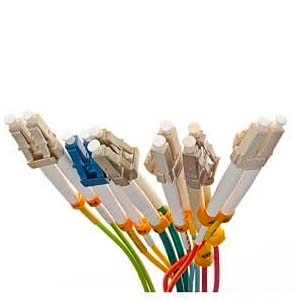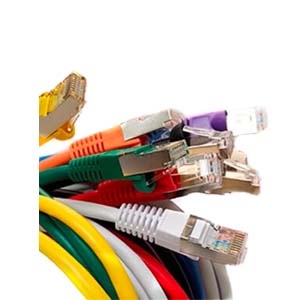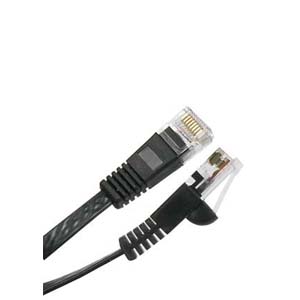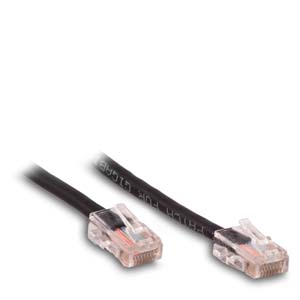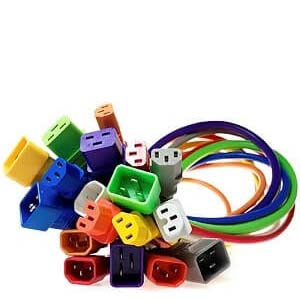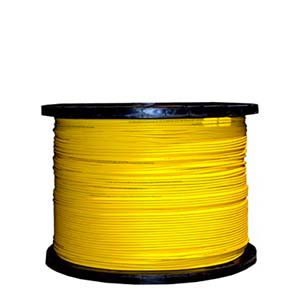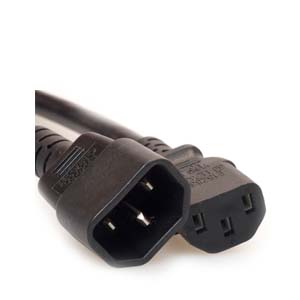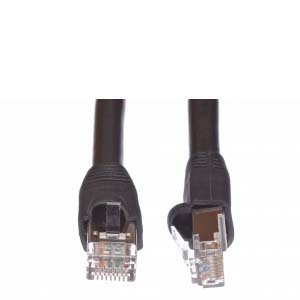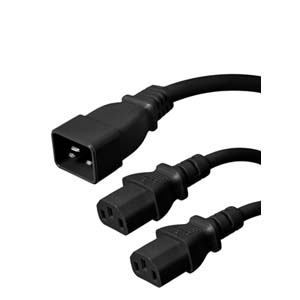Cables Blog
Benefits of a Wired Home Network
Individuals that are renovating a home or upgrading a network should never overlook the advantages of a wired home network. They can be quite significant, ranging from performance boosts to increased security. Those benefits make a wired network an appealing option for many homes, and it's fairly easy to install a wired network to take advantage of them.
by Vikas Dayal • April 26, 2017
Individuals that are renovating a home or upgrading a network should never overlook the advantages of a wired home network. They can be quite significant, ranging from performance boosts to increased security. Those benefits make a wired network an appealing option for many homes, and it's fairly easy to install a wired network to take advantage of them.
Higher Speed
The biggest benefit to choosing a wired network is the increased speed that it offers. The precise speed will vary depending on the type of cable that the network uses. Cat5e cables are the most popular option for wired Ethernet connections, and they can support up to 1000 Mbps per second. Some cables, such as Cat6, can do even better. Most wireless connections struggle to get more than a few hundred per second. The wireless networks are certainly better than they used to be, but none of them can compete with a wire in terms of sheer speed.
This is most noticeable for people who transfer large files over their network, such as collections of images. It can also be relevant for some gaming purposes. These uses involve transmitting far more data than most others, so anything that speeds up the transfer will make a big difference for the user.
Increased Security
Wired connections are more secure because they are harder for outsiders to access. Anyone who can interact with a network has the potential to breach its security. Anyone who is in range of a wireless network can interact with it, whereas interacting with a wired network requires a physical connection to the wire or access to a computer that is on it. That makes it much harder for hackers to get into the network, which helps keep private files safe.
Greater Reliability
There are a lot of things that can interfere with a wireless network. Walls and other obstructions can cause the signal to suffer. Routers often crash and need rebooting. The problems tend to be worst near the edge of the network's range, but any computer on to a wireless network can run into trouble. Wired systems form a stark contrast. Almost nothing short of losing power or damage to the wires themselves will cause the network to stop doing its job. That makes them the system of choice for people who need to be absolutely sure that their network will function properly when they need it.
Ease of Access
Wireless networks often run into compatibility issues when new computers try to connect. There are plenty of different problems that can cause that, and it is difficult to troubleshoot the issues to start fixing them. It's especially difficult when the connection problems make it impossible to look up the issue and seek out help on the Internet! Wired connections rarely have any problems of those kinds. In most cases, connecting to a wired network is as easy as plugging the cable into the right slot in the computer. When problems do arise, diagnosing them tends to be fairly easy because there are fewer ways in which the connection process can go wrong.
Choosing Cables
Setting up a wired network does have one complicated step. There are several different types of Ethernet cables, and it's important to pick the right one. Most people want to choose one of three options for their home network.
Cat5 cables were the first Fast Ethernet cables, meaning they can handle speeds of up to 100 Mbps. They're compatible with telephone and video signals, so installing them is often as easy as running a cable to each telephone jack in the house.
Cat5e cables are similar to Cat5, but optimized for higher speeds and bandwidth. The two types are similar enough to be compatible with each other, so Cat5e is popular with both new installations and upgrades.
Cat6 offers higher bandwidth than Cat5e, but the real benefit comes from thinner wires and increased insulation. That makes it a great choice for areas with lots of electromagnetic interference. They are also compatible with both Cat5 and Cat5e cables. These do cost more than Cat5e cables, so home network that don't need their special traits should usually stick to Cat5 or Cat5e.


